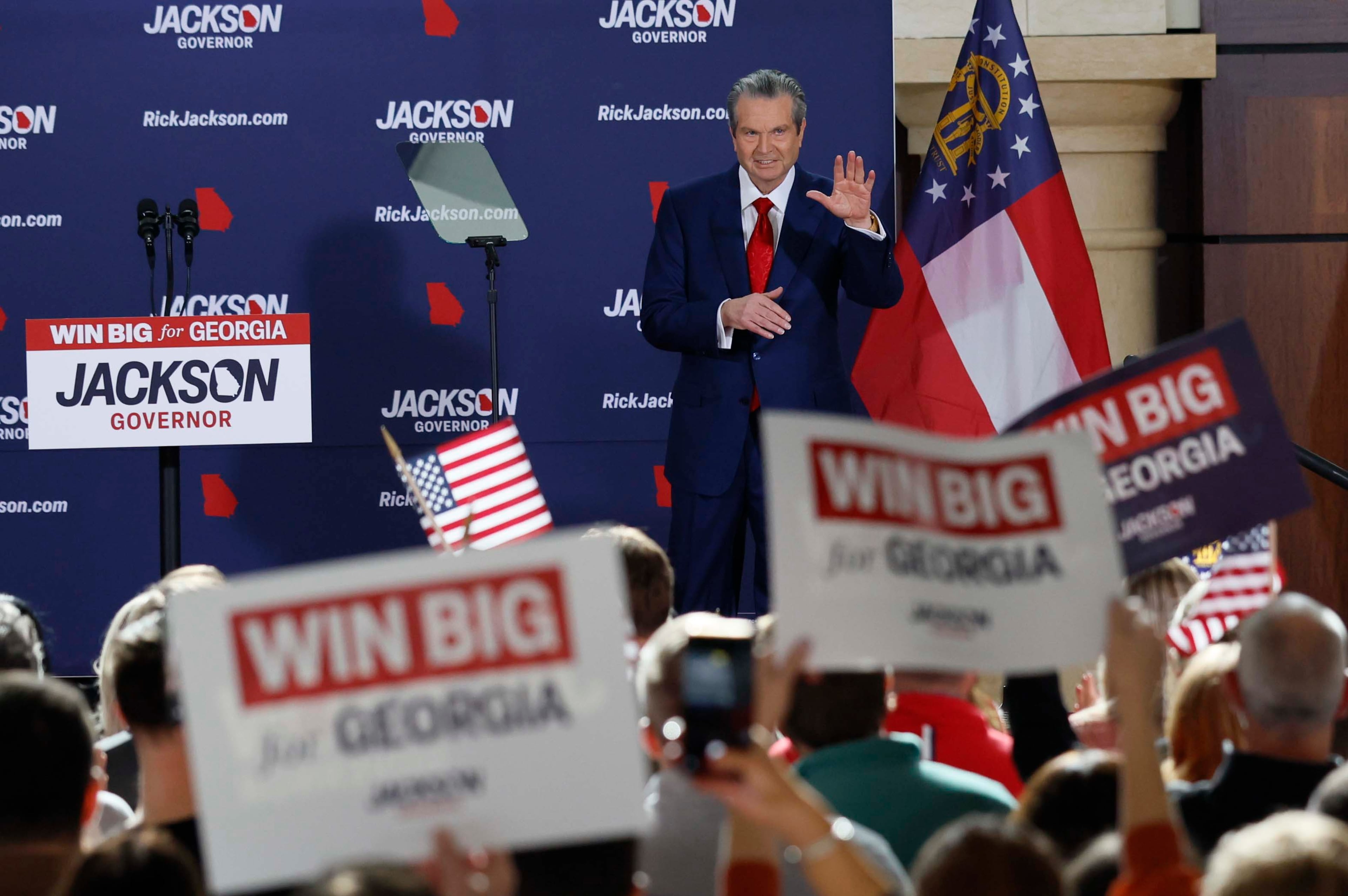OPINION: Election workers are under attack. That means democracy is, too

Georgia is the country’s foremost producer of peanuts. So for a moment, let’s make it about peanuts.
It’s Nov. 5, 2024, and your favorite cousin, a customer service rep at the neighborhood peanut retailer, has done an excellent job assisting customers, ensuring transactions were fair and legitimate and helping the peanut economy run smoothly.
Walking to the car after work, however, people harass your cousin and shout vile obscenities. Your cousin gets doxed – private, personal information gets accessed and made public, people start calling the house, threatening your cousin’s life.
Why? People have been told your cousin is responsible for what will be skyrocketing peanut prices. Never mind this is untrue, and your cousin has absolutely nothing to do with peanut prices and was merely doing their job.
Of course, to be clear, no such problems plague Georgia’s peanut industry or its employees. Yet, as we approach the Nov. 5, 2024, election, this is the reality for poll workers and election officials at the heart of our very democracy.

For years, Georgians faced historic and unprecedented challenges at the polls. It was only through the challenging work of dedicated election workers and community activists that we have begun to experience shorter wait times and positive voting experiences, especially in previously neglected communities across the state.
However, these same dutiful poll workers have faced and continue to face unwarranted aggression because of the lies being told to their communities.
Just last month, The Atlanta Journal-Constitution reported that a member of Georgia Secretary of State Brad Raffensperger’s office was among those targeted with the kind of “swatting” directed at politicians and poll workers throughout Georgia and across the nation.
“My family has now joined the ranks of those who have had their home swatted,” Gabriel Sterling, Raffensperger’s chief operating officer, posted on X, formerly called Twitter. “We should all refuse to allow bomb threats and swatting to be the new normal.”
Without the friends, family and neighbors who choose to serve as election officials at all levels, Georgians would face a return to more dysfunctional elections and to increased challenges in voting, both of which have been all too common throughout our state’s history.
The Brennan Center 2023 survey of nearly 11,000 local election officials shows 21% have considered departing before the November election, 30% report being personally abused, harassed or threatened and nearly 3 in 4 believe threats have increased recently.
Fortunately, a bipartisan coalition of lawmakers in the Georgia General Assembly agrees with nearly 75% of Americans that election workers should be better protected.
Several possible policy solutions have been adopted across the country. These include privacy protections; prohibitions against intimidation, threats and harassment; civil causes of action for victims; adequate funding and training to support the security of election officials; and the collection of and increased access to data about threats to election officials.
States are seeing bipartisan support. Arizona’s Republican-controlled Legislature passed a law the Democratic governor signed, which enables election officials to request their identifiable personal information be kept confidential to prevent doxing. In Nevada, the Democratic secretary of state championed a bill that makes threatening or doxing election officials illegal. This bill passed unanimously and was signed by the state’s Republican governor in May.
Thanks to legislators in Minnesota, there are now comprehensive protections for election officials, including new grounds for them to pursue civil remedies related to the intimidation of election workers. Similarly, Republican states like Oklahoma recently passed laws protecting election officials.
Whether the states are red, blue or purple, legislatures have recognized that protecting those who safeguard our elections is not “political,” but patriotic and fundamental to our democracy.
After considerable hard work, analysis and deliberation, a bipartisan bill has emerged for a committee vote in the Georgia General Assembly. House Bill 1118 employs three of the most common solutions, including limiting opportunities for anti-democratic actors to threaten these officials by restricting access to their personal information and expanding existing protections against violence, threats and interference to cover all election officials without unnecessarily increasing existing criminal penalties. And the bill creates a mechanism for reporting violations of existing law and collecting information concerning threats, thereby allowing our state’s policymakers to calibrate their policy solutions to be responsive to the concrete, available data.
It’s time for Georgia to join the growing list of states that have come together on common-sense protections for election officials and pass HB 1118 into law.
This ain’t about hypothetical peanut problems, it’s about real and dire threats to our democracy. And we need to act like it.
Peter Simmons is Georgia state policy strategist for Protect Democracy, a cross-ideological nonprofit group dedicated to defeating the authoritarian threat, building more resilient democratic institutions and protecting our freedom and liberal democracy.


